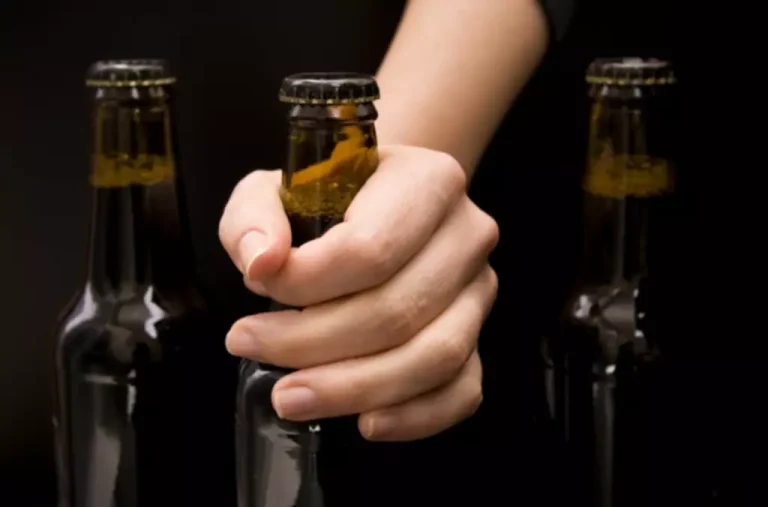
For those seeking help, centres like Madison Recovery Center offer comprehensive treatment programmes that address both the physical and psychological facets of alcohol dependence. It’s essential to be aware of these risks, as they underscore the critical nature of moderation or, when necessary, complete abstinence. Opioids, including prescription painkillers and heroin, are another class of highly addictive substances. These drugs work by binding to opioid receptors in the brain, blocking pain signals and producing intense feelings of euphoria.

Neuroplasticity and Addiction: Rewiring the Brain for Recovery

The roots represent the underlying causes and risk factors for addiction, while the branches symbolize the various manifestations and consequences of addictive behavior. While we’ve focused primarily on the physiological aspects of addiction, it’s crucial to recognize that addiction is a biopsychosocial disorder. The psychological component plays a significant role in both the development and maintenance of addiction. Healthcare professionals https://ecosoberhouse.com/ use a variety of tools and criteria to determine the presence and severity of addiction. The term ‘alcohol dependence’ has replaced ‘alcoholism’ as a term in order that individuals do not internalize the idea of cure and disease, but can approach alcohol as a chemical they may depend upon to cope with outside pressures. Alcohol use disorder can include periods of being drunk (alcohol intoxication) and symptoms of withdrawal.
The 100 Best TV Episodes of All Time
These activities help maintain positive mental health and manage stress, which is often a trigger for relapse. Relapse prevention is an integral part of the recovery process from alcohol addiction. Strategies for avoiding relapse are multifaceted, focusing on developing a strong support network, engaging in self-care activities, and learning to manage triggers and cravings. The timeline for these psychological changes varies among individuals and can be influenced by factors such as age, the severity of addiction, and the presence of a supportive treatment environment. Despite its significance, PAWS is not formally recognized in the Diagnostic and Statistical Manual of Mental Disorders, and the research on protracted withdrawal is limited.
Health problems caused by alcohol dependence

The hormonal stress response is mediated by a system known as the hypothalamic–pituitary–adrenocortical (HPA) axis. Within this system, stress induces the release of the hormone corticotrophin-releasing factor (CRF) from a brain area called the hypothalamus. CRF acts physiological dependence on alcohol on the pituitary gland located directly below the hypothalamus, where it initiates the production of a molecule called proopiomelanocortin (POMC). This compound is processed further into smaller molecules, such as β-endorphin and adrenocorticotropic hormone (ACTH).
- If you’re worried about your drinking, get in touch with your local GP surgery, who will be able to help.
- With different operant conditioning procedures, researchers can determine the time course, pattern, and frequency of responding for alcohol.
- Additionally, articles published within Cureus should not be deemed a suitable substitute for the advice of a qualified health care professional.
Addiction physicians and therapists in solo or group practices can also provide flexible outpatient care. These and other outpatient options may reduce stigma and other barriers to treatment. Telehealth specialty services and online support groups, for example, can allow people to maintain their routines and privacy and may encourage earlier acceptance of treatment.
Risk factors
- However, a recent study [1] raises significant concerns about the accuracy of these diagnostic data.
- If you can’t function properly in the morning without your cup of coffee, it could be that you are caffeine-dependent.
- In this procedure, rats are implanted with electrodes in discrete brain regions and then are allowed to self-administer mild electrical shocks to those regions via standard operant procedures.
- This includes recognizing and addressing substitute addictions, where individuals replace one addictive behavior with another.
- PAWS can present a range of psychological symptoms that persist after the initial acute withdrawal phase from alcohol.
Together, these findings suggest that neuroactive steroids are potential key modulators of altered GABA function during the development of alcohol dependence, perhaps by acting directly at GABAA receptors (Sanna et al. 2004). Dependence can only happen if you abuse alcohol excessively over an extended period of time. You won’t spend one weekend binge drinking and wake up on Monday with alcohol dependency. This is because it takes time for the effects of alcohol on the brain to make structural and chemical changes. Instead, a dependence develops in chronic drinkers who consume alcohol on a regular (usually daily) basis. It can lead to serious health issues, including liver disease, heart disease, and digestive problems.
- This manifests as tolerance – needing more of the substance to achieve the same effect – and withdrawal symptoms when use is stopped or reduced.
- Samples were collected from the nucleus accumbens of alcohol-dependent mice that had undergone three cycles of chronic intermittent alcohol vapor exposure (red symbols) and nondependent controls (black symbols).
- Chronic exposure to alcohol can cause persistent structural and functional changes in the brain.
- It is characterized by the return to alcohol use after a period of abstinence and is comparable to relapse rates in other chronic diseases.
- This new focus is clinically relevant because these symptoms (e.g., anxiety, negative affect, and altered reward set point) may serve as potent instigators driving motivation to drink (Koob and Le Moal 2008).
Genetic factors

PAWS refers to a set of persistent withdrawal symptoms that occur after the acute withdrawal phase from alcohol has ended. Unlike the acute phase, which is marked by the previously discussed physical and psychological symptoms, PAWS symptoms are often subtler but can still be debilitating. These symptoms result from alcohol’s depressant effects on the central nervous system, and sudden withdrawal forces the body to readjust.
Let’s talk about your recovery
End-Stage – This final stage, known as the late stage, is described as total alcohol dependence, where you may experience uncontrollable alcohol consumption. Health conditions, like cardiovascular and liver diseases, may be caused or exasperated by your alcohol use, and death from alcohol poisoning or long-term effects of alcohol use is imminent if treatment is not sought. Aside from intense cravings and consuming thoughts of alcohol, when not drinking, you may experience severe withdrawal symptoms, including visual or hearing disturbances or hallucinations, delirium, and possibly seizures. Another molecule involved in regulating the body’s stress response is called neuropeptide-Y (NPY). It has a neural and behavioral profile that in almost every aspect is opposite to that of CRF.
Navigating the Physical and Psychological Timeline of Alcohol Recovery
- However, some researchers are debating whether these compounds can affect alcohol-reinforced behavior without affecting consummatory behavior in general.
- This might include ongoing therapy, support groups like Alcoholics Anonymous or SMART Recovery, and lifestyle changes to support a substance-free life.
- The gastrointestinal biome is severely manipulated by the use of alcohol over a long period of time, which in turn is found to have a link with the establishment of various complications [27].
- Medication, support groups, and psychotherapy are all proven methods for reducing the severity of PAWS symptoms and supporting long-term recovery.

Commenti recenti